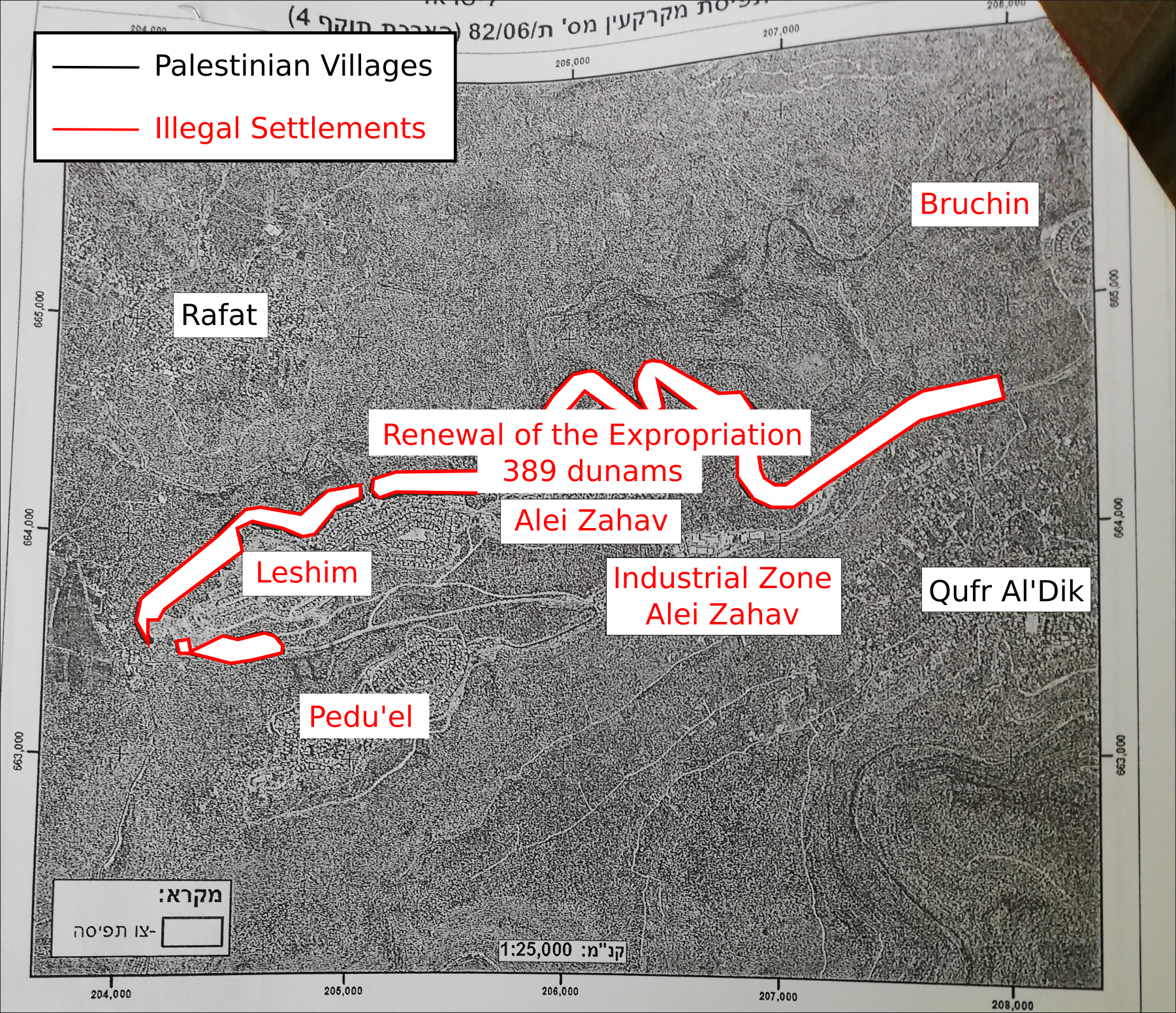Tag: Confiscation
-
Report on Land Confiscations by the Israeli Army in Salfeet and Qalqilya Area
The Israeli Occupation Forces have recently announced a new series of land seizures in eleven villages in Salfeet and Qalqilya, Occupied Palestine, a move that will affect almost 1 million square metres of Palestinian land.
-
Palestinian assaulted and work tools confiscated during early morning raid by Israeli forces
9th April 2017 | International Solidarity Movement, Ramallah team | Kafr ad Dik, occupied Palestine At 2am on Wednesday morning, three intelligence vehicles and six military vehicles arrived at the building where Shaha Dharma lives with his family in Kafr ad Dik; Salfit municipality. For over two hours, Israeli forces raided, harassed, and searched the apartments…


